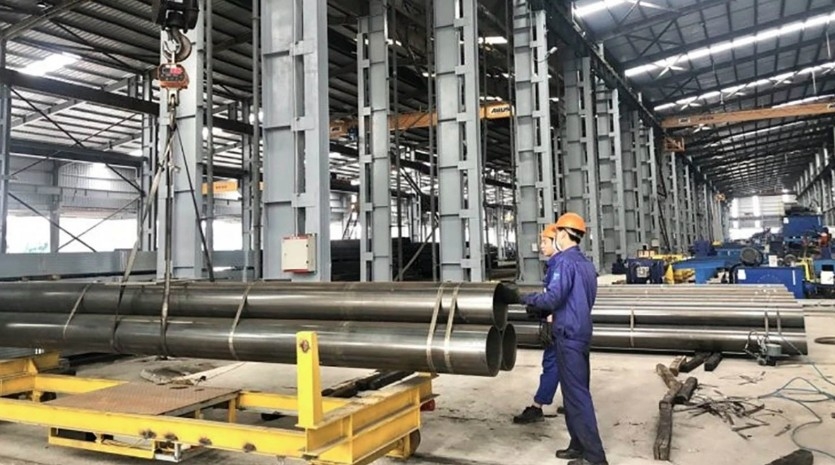Private economic sector set for breakthrough growth as golden opportunities emerge
VOV.VN - After nearly four decades of pursuing the Doi Moi (Renewal) process, Vietnam’s private economic sector has grown into a key engine of growth, but institutional hurdles, an uneven business environment, and short-term thinking continue to hinder its breakthrough potential.

Private economic sector yet to achieve breakthrough as expected
Since the launch of Doi Moi in 1986, the private economic sector was initially viewed as a “component in need of reform,” subordinate to the state-led model. Over time, this perception shifted.
By 2011, the sector was acknowledged as a mainstay of national growth. In 2017, it was designated an “important driving force.” Most recently, through Resolution No. 68, the Politburo officially recognized it as the “most important driver” of the national economy.
Today, the private economic sector contributes roughly 51% of GDP, over 30% of state budget revenue, supports more than 40 million jobs, and accounts for nearly 60% of total social investment capital.
Yet according to a report by the General Statistics Office, while approximately 111,800 enterprises were newly established or resumed operations in the first five months of the year, nearly 111,600 exited the market.
Behind these striking numbers lies a more sobering reality: the domestic business climate remains unstable and lacks the long-term appeal needed to attract sustained investment.
Although Vietnam has joined numerous free trade agreements (FTAs), the benefits have largely been captured by foreign-invested enterprises. In contrast, domestic private firms remain fragmented, weakly connected, and largely absent from global value chains.
Despite clear shifts in mindset and the introduction of supportive policies and mechanisms, progress has fallen short of expectations. Cumbersome administrative procedures, restricted access to capital and land, overlapping inspections, and regulatory burdens continue to stifle business growth.
Pham Tan Cong, Chairman of the Vietnam Chamber of Commerce and Industry (VCCI), noted that the majority of private enterprises in Vietnam are micro, small, and medium-sized, with limited financial capacity, weak management capabilities, and low levels of technological adoption and innovation. Labour productivity, operational efficiency, and competitiveness remain modest, and most firms still lack long-term strategies or effective linkages with state-owned or foreign-invested enterprises.
The private economic sector continues to face difficulties in accessing key resources, particularly capital, technology, land, and skilled labour. Many support policies remain either ineffective or difficult to access, while business operating costs remain persistently high.

Shifting mindset for transformative change
Resolution No. 68, signed by Party General Secretary To Lam in early May, seeks to remove these persistent barriers. For instance, Hanoi has set a target for the private economy to contribute between 55% and 60% of the city’s gross regional domestic product (GRDP) by 2030.
In addition, 70% of small and medium-sized enterprises are expected to undergo comprehensive digital transformation, with at least half engaging in innovation activities.
These targets will require not only proactive support from the State, but also decisive transformation within the business community. The State must redefine its role, from controlling to enabling, from managing to facilitating, and from pre-approval to post-implementation supervision.
At the same time, substantial investment is needed in strategic areas such as infrastructure, energy, and foundational industries where private enterprises cannot operate independently.
Many experts believe Resolution No. 68 will provide the institutional breakthrough needed to advance the private economy. Yet even with the most open and enabling policies, success ultimately depends on businesses embracing reform.
To capitalise on this “golden opportunity,” private enterprises must modernise their management systems and adopt long-term development strategies.
Nguyen Duc Hung, Director of Thien Duyen Law Firm, advised businesses to pursue professional and efficient management practices, integrate advanced global technologies, expand their scale, enhance competitiveness in the domestic market, and position themselves for entry into regional and international markets.
Associate Professor Dr. Tran Dinh Thien, former Director of the Vietnam Institute of Economics, noted that if Vietnam can unlock key resources, redefine the role of the State, and strengthen the capacity of private enterprises, the private economic sector could drive a new era of growth rooted in domestic strength, while reducing overreliance on foreign direct investment (FDI).




